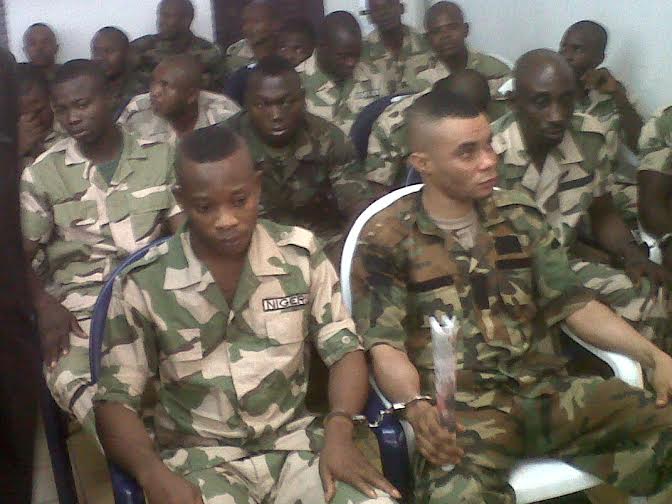The Nigeria army says the trial and conviction of its soldiers is paying off as discipline and professionalism have been maintained.
About 70 soldiers have been sentenced to death for mutiny by a general court-martial sitting in Abuja.
Speaking to journalists on Wednesday, Olajide Laleye, army spokesman, said that soldiers were now more aware of the security exigency of the country.
“I wish to bring to your attention that the strict enforcement of service regulations and laws by the army is paying off. Troops are now better attuned to the reality of our national security emergency,” he said.
Advertisement
“Cases of unprofessional conducts have been significantly reduced. The army notes with satisfaction that troops’ fighting spirit, courage, determination and patriotism have been rekindled.”
Laleye disclosed that more soldiers were being tried for various offences, adding that the court-martialling of soldiers was a continuous process aimed at keeping discipline in the army.
He stated that the court martial process was anchored on professional standards, noting: “The judicial process that led to the convictions and acquittals followed international best practices in military law and also confirms to relevant Nigerian laws.
Advertisement
“This is contrary to insinuations by the media, which suggest that due process has not been followed in the trial of officers and soldiers. Let me state categorically that a general court martial has the status of the high court and is backed by extant laws of the federal republic of Nigeria.”
Laleye also explained the reason the army was taking its time to recapture some towns in the hands of Boko Haram.
“The Nigeria army is very careful about collateral damage, to that extent our operations are carefully planned to make sure that collateral damage is reduced to the barest minimum,” he said.
“If certain areas have not been recaptured, it is because the Nigerian army is giving such areas very careful plans; the plans are ongoing.
At the right time, you will see the outcome; we will not tell you, of course, before hand, of what we intend to do; but you will see the outcome.”
Advertisement
Add a comment





